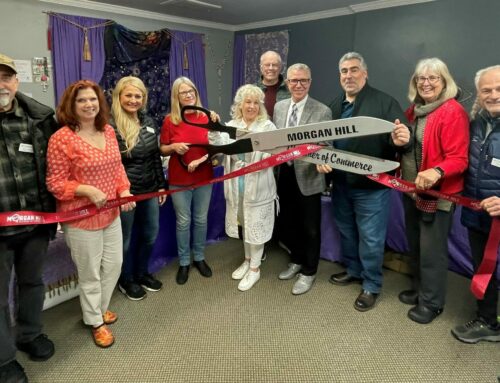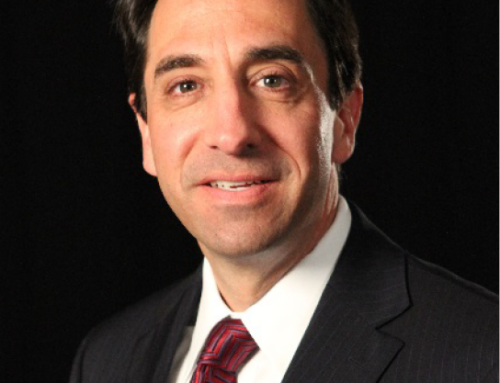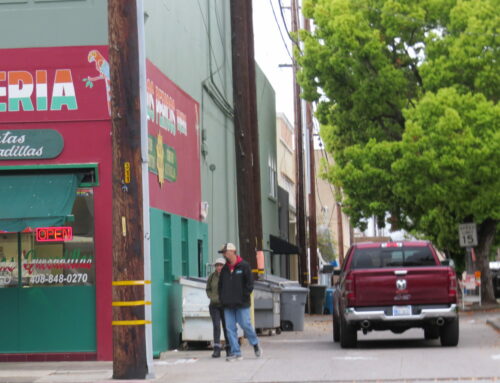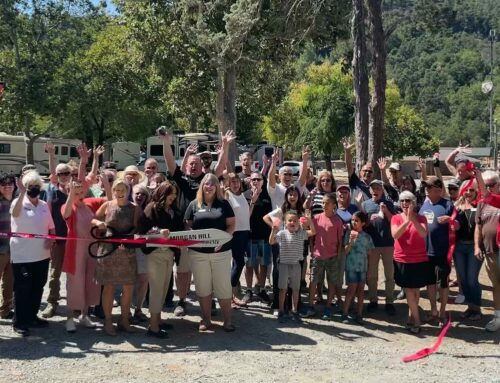Published in the July 8-21, 2015 issue of Morgan Hill Life

Diana Rodriquez-Zimmerer
On a recent spring morning I released two hummingbirds back into the wild in Morgan Hill resident Terry Moriyama’s backyard. During the 10 months that I’ve volunteered for the nonprofit Wildlife Education and Rehabilitation Center, I’ve discovered a team of people like myself who feel that all lives matter.
The two orphaned hummingbirds were under my care for several weeks. One had been found by Moriyama’s mother-in-law Lilly and the other was found in a cafe in Sunnyvale. They were brought to the WERC location where the staff placed them in a warm and quiet place. They were nestlings, meaning they were not yet eating on their own.
I volunteered to serve as their surrogate mother, taking care of the tiny birds by feeding them with food from a syringe every 20 minutes. Hummingbirds have a high metabolism rate and so need to be constantly eating.
Every five days or so as they grew, we moved them into bigger baskets. Once they show that they can eat on their own, then they must show they can “eat on the wing.” They get moved into the WERC aviary. There they can perfect their skills and build their stamina. Being able to see them released back into the wild was both joyful and emotional. The baby birds were in a very vulnerable position, so with the care that I was able to provide them with WERC, it did feel like I had sort of raised them.
If you ask me why I did what I did to help two hummingbirds, I would say it is because of the joy I feel helping a living creature who needs a little assistance to survive. It just feels good to me to help an animal who otherwise might have been eaten or stomped on in the wild. I’ve always wanted to take care of hummingbirds.

Lilly Moriyama and Diana Rodriguez-Zimmerer check out the two hummingbirds before they were released June 24.
Photo by Marty Cheek
I volunteered at another wildlife center in 1992 and I saw people taking the birds home in little baskets and I thought that was the cutest thing in the whole world. But at that point in my life I was working full time so I just couldn’t commit to taking care of hummingbirds because they have to be fed so often. When last year for the first time I was not working full time, I volunteered with WERC And am glad I did. Amy Yee, WERC’s hummingbird expert, is leaving for out of state for a year, so she taught me what she knew about taking care of the flittering birds and gave me her supplies.
WERC is run by Sue Howell, a dedicated women when it comes to helping wild animals. She’s assisted by Colleen Grzan and Anna Venneman and the team has an excellent release rate because they have top-notch knowledge developed over the years. Sue has even gone to Alaska for her eagle rehabilitation training. Everybody is on the cutting edge of the best treatment and best medication and handling methods.
They’re always learning and they share that knowledge with the volunteers. Besides avian animals from hummingbirds to raptors, WERC also works with mammals and specializes in orphaned bobcat rehabilitation. They developed a bobcat rehabilitation protocol that other rehabbers nationwide have adopted. When the bobcats are four or five months old and have developed their survival skills, they are released within three miles of where they were originally found.
If you’re interested in helping wild animals such as birds, bobcats and other mammals, I encourage you to consider supporting WERC. WERC is relatively small compared to some of the wildlife centers in the area but that’s what helps make its team of volunteers and staff a family. WERC is the only wildlife rehab center in the Morgan Hill and Gilroy area and it is active in many community events. They also offer school programs about wildlife. I would encourage anyone to contact WERC to learn more.
Diana Rodriguez-Zimmerer is a San Jose resident who volunteers with WERC. She wrote this column for Morgan Hill Life.






